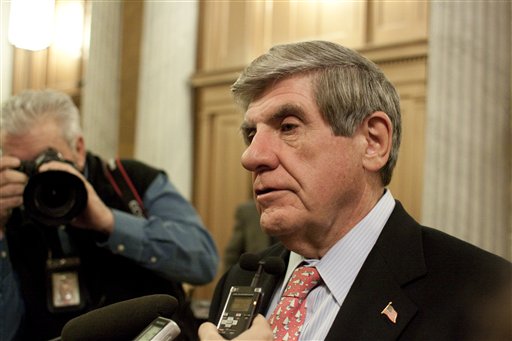
On Monday, a small band of Nebraskans, angered by Sen. Ben Nelson’s healthcare vote, began organizing a ballot initiative to add recall elections to the state’s constitution. If they can collect 113,000 signatures by July 2, the question will reach voters in November and Nebraska might become the 20th state to permit the recall of elected officials by petition.
Nelson, of course, probably shouldn’t be sweating this one. Eighteen states now have provisions for recall elections. (The 19th, Virginia, allows for recall trials.) And while recall elections are regularly held at the local level in these states, there have only been three successful statewide recall efforts in American history: in North Dakota in 1921, Arizona in 1988, and California in 2003. (While the Arizona petitioners qualified to recall Gov. Evan Mecham, he was impeached before the scheduled election could be held.)
Still, the proposed recall rule in Nebraska is notable because the signature requirement would make for one of the laxer recall laws in America.
According to the Omaha World-Herald, the petitioners’ amendment would require the signatures of 30 percent of the total votes cast for that official in the last election — not the total votes cast in that election; just the total votes cast for that official in that election. So if the last election featured a close two-party contest, petitioners would need signatures from about 15 percent of all those who voted. (This does offer a significant advantage to politicians who dominated their most recent general elections.)
Compare this with the signature standard in most recall states: 25 percent of all votes cast in the last election. Or consider the case of New Jersey, where a tea party group trying to recall Sen. Robert Menendez is scrambling to collect 25 percent of the total number of registered voters — about 1.3 million certified signatures.
The lowest standard for any state arguably belongs to Montana, which requires just 10 percent of the total registered voters at the time of the last election. Kansas’ signature qualification is the steepest: 40 percent of the entire vote cast in the last election for that office.
There are other restrictions that make recall elections difficult: the amount of time that needs to lapse between the inauguration and the start of the recall drive, for instance, or the number of days that petitioners are given to collect the needed signatures. Some states even require the listing of legitimate grievances.
So as Republicans look for ways to rage against the new healthcare law, get ready to see more attempts at recalls — though “attempt” ought to remain the operative word there.


